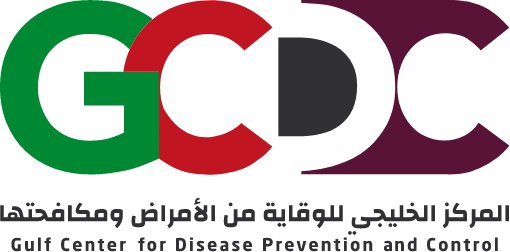Prioritization Workshop
February 27-28, 2023
Riyadh، Saudi Arabia
Closed to Members only
As the Gulf CDC is still in the first stages of development as an organization, it is not possible to start tackling all the important disease and risk factor gaps and priorities, so a priority shortlist of topics to be tackled first is required.
To better identify these priorities, a study to understand the burden of the main diseases and risk factors in the region has been carried out. This adds new evidence to the findings of the situational assessment and the regional Public Health Programs survey carried out earlier in the year. In addition to this scientific evidence, the Gulf CDC believes that it is important to hear directly from the member states’ experts, what they feel are the most pressing priority topics for the Gulf CDC to tackle in the first few years.
Objectives
1. To hear and discuss the member states’ expert opinions on possible priority topics and interventions for the Gulf CDC to tackle in the immediate future.
2. To share and discuss the method the Gulf CDC intends to use to determine priorities for its future workplans.
3. To agree upon the main priority areas and interventions where there is a clear need of public health action to be included in a regional workplan for policy and program support coordinated by the Gulf CDC.
4. To explain the roles and responsibilities of all Permanent Communication Networks, Working Groups, STAG, and CLOs.
Surveillance Workshop
7-8 March 2023
Riyadh, Saudi Arabia
Closed to Members only
Public health data are usually collected through disease indicators or event-based surveillance, registries, national surveys, and research activities. With the maturity of public health surveillance systems worldwide, surveillance systems in the member states have witnessed significant growth over the last decade. This growth has been accompanied by shifting population characteristics with new disease patterns and increases in communicable and non-communicable disease burdens.
This two-day workshop will provide a forum for a broad spectrum of surveillance and data experts from the GCC (Gulf Cooperation Council) member states and from the globe to exchange knowledge, build connections, and have fruitful collaboration. It also aims to provide a technical overview of the available surveillance systems in the GCC region and globally.
Objective:
Exchange knowledge and connect national, regional, and international surveillance experts together to:
1. Discuss the inauguration of a collaborative regional surveillance permanent communication network.
2. Identify and share lessons learned and innovative practices in different methodologies of surveillance (disease indicators or event-based surveillance, registries, and national surveys)
3. Understand existing surveillance systems, policies, and operations in GCC member states.
4. What’s on the horizon? Overview of the innovative technologies in the available surveillance systems globally.
5. Identify gaps and challenges in surveillance at GCC member states.
6. Develop a work plan to strengthen GCC member states capacity to conduct and evaluate national surveillance systems; by identifying areas of improvement/priorities (recommendations) that Gulf CDC can provide support to GCC member states.


